Cape Fair Representative Brad Hudson is departing the House and offered this address on the penultimate day of the 2024 session:
Tag: Brad Hudson
House plan would stabilize Missourians’ vehicle property tax values
Missourians in recent years have been slapped with high and increasing property tax bills for their vehicles, and state lawmakers are going to try again this year to stem that.
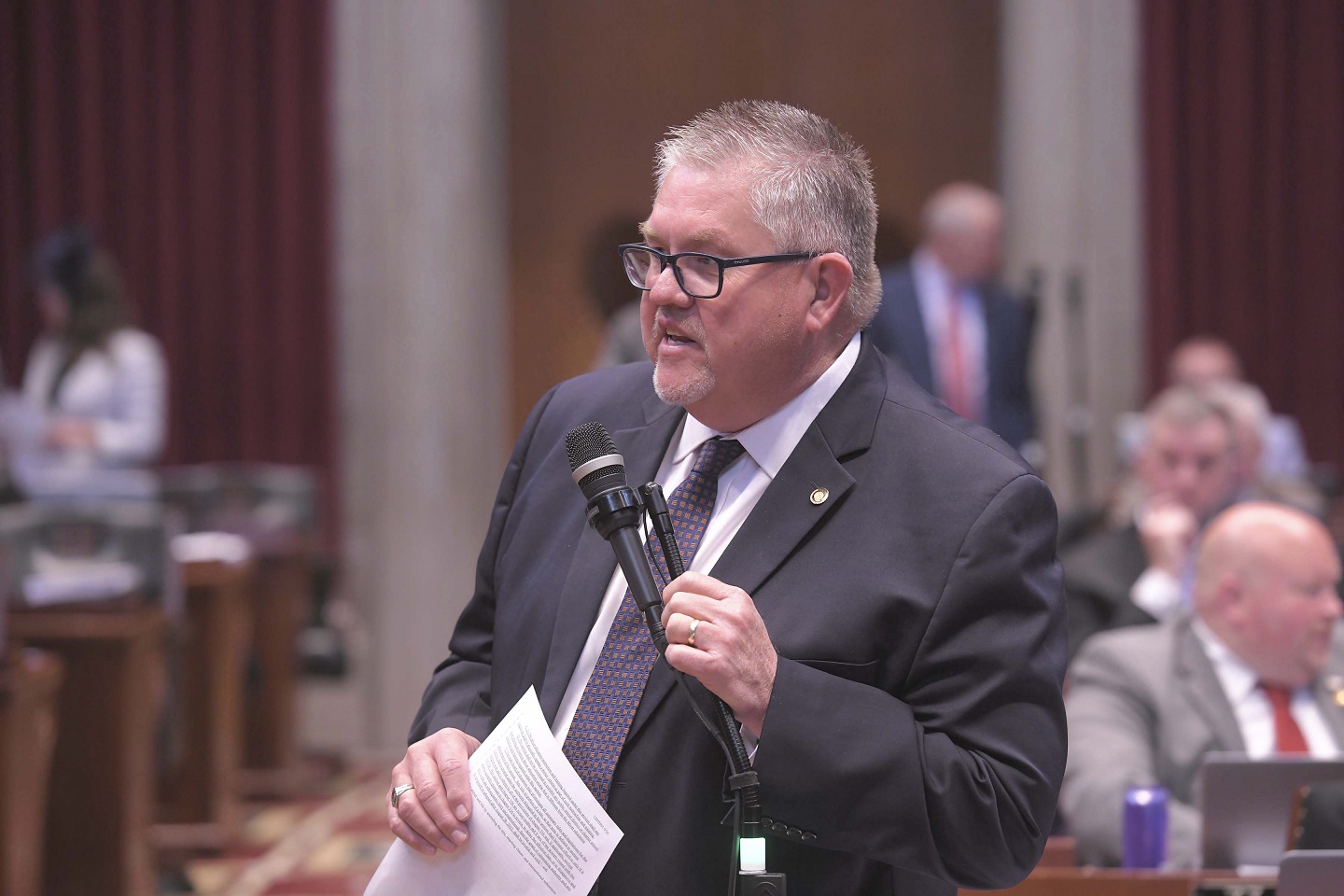
The issue has been a top one for two legislators who were assessors before they came to Jefferson City.
One of them is Representative Rodger Reedy (R-Windsor), who sees his House Bill 1690 as a taxpayer protection act.
“We are trying to do this to make it better for our taxpayers and to be more fair to them,” Reedy said.
The other is Representative Brad Hudson (R-Cape Fair), who said when he was an assessor, “I would have never wanted to sit across the desk from someone and say, ‘Hey, you know that farm truck that you’ve got? Yeah, it’s a year older, yeah it’s got more miles on it, but I’m going to hit you with a higher assessment this year and you’re going to have to pay more in property taxes because of that.’ That doesn’t make sense. It’s not right.”
The issue with vehicle valuations began in 2020 when the COVID pandemic halted supply lines. Parts for vehicles were harder to come by this inflated the demand for, and therefore the values of, used vehicles.
“So what the end result has been, you would have the same vehicle and it would be a year older but the trade-in value would show to be higher, so your assessment would be higher and you would pay more taxes on that vehicle that’s a year older,” Reedy explained. “I basically, fundamentally think that if that vehicle’s a year older, typically you’ve got 20-30 thousand more miles on it, you should not be paying more taxes on it than you did the year before.”
The state statute to which Hudson refers dictates that assessors must use the October issue of the National Automobile Dealers Association’s (NADA) Used Car Guide to determine the value of a motor vehicle. Reedy’s bill would allow the State Tax Commission to designate a different nationally produced automobile guide to be used by assessors. His proposal would also establish a depreciation schedule to be applied to the values set forth in that automobile guide.
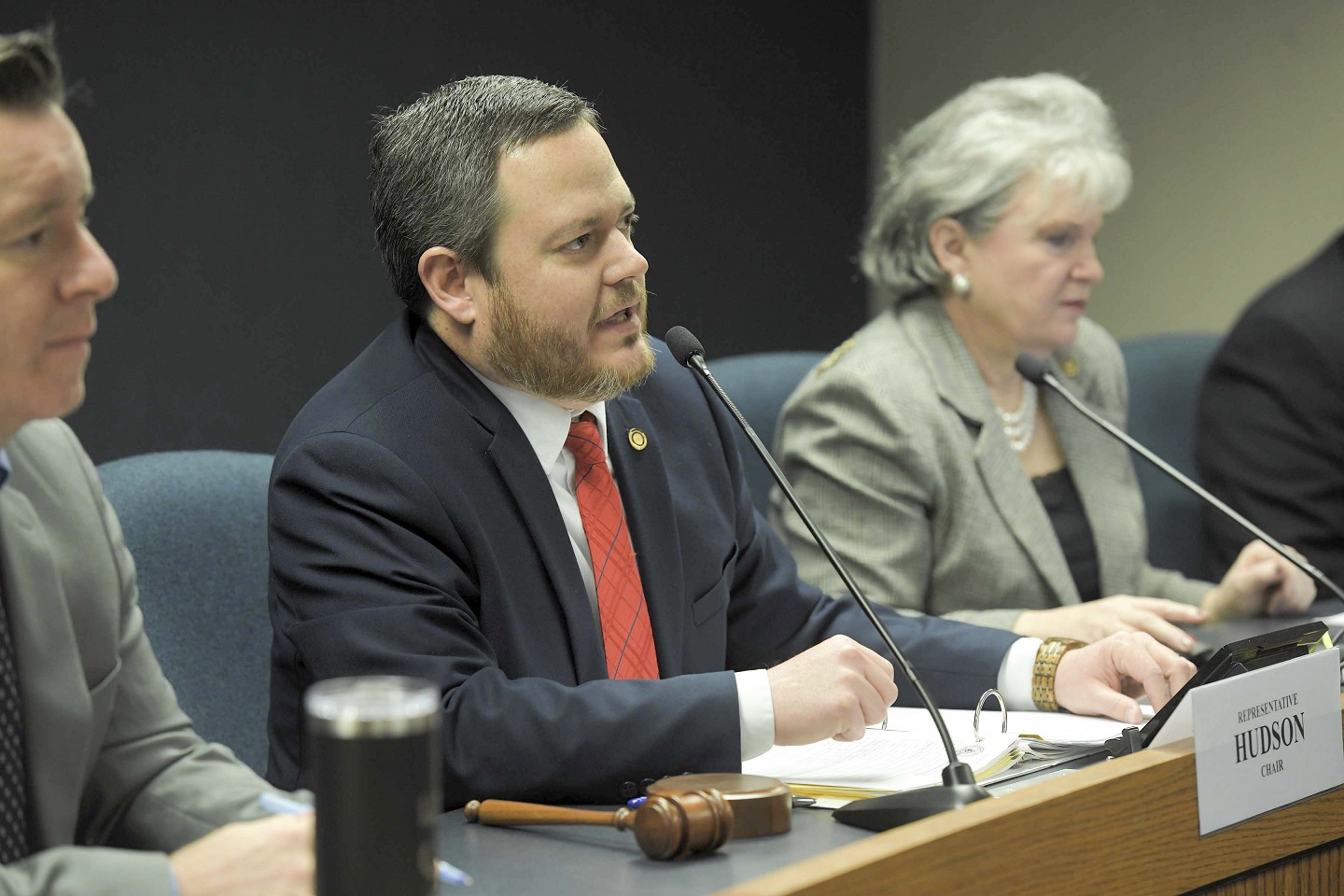
“It makes sure that these used vehicles depreciate in value for taxation purposes,” Reedy said.
Hudson said the issue of inflated vehicle valuations has the potential to negatively impact every household in Missouri.
Reedy said the problem hasn’t abated on its own the passage of time, “I can give you a case where a vehicle that had a value of $7,300 in 2021 went to $7,600 in 2022. Even now, in ’23 that same vehicle has just dropped back to $7,500, so [the owner of] that particular vehicle will pay more taxes in 2023 than [they] paid in 2021.”
Both lawmakers said this is exactly the kind of issue Missouri lawmakers should be addressing on behalf of their constituents.
This year’s version of this legislation was passed out of the House 150-0 before stalling out in the Senate. In 2022, Hudson carried a version of the bill that cleared the House 146-0 but also did not clear the Senate.
Tax Credit Legislation Expected to Bring More Film Productions, Concerts to Missouri
More television, movie, and concert productions could be coming to Missouri after the legislature approved tax credits targeting the entertainment industry.
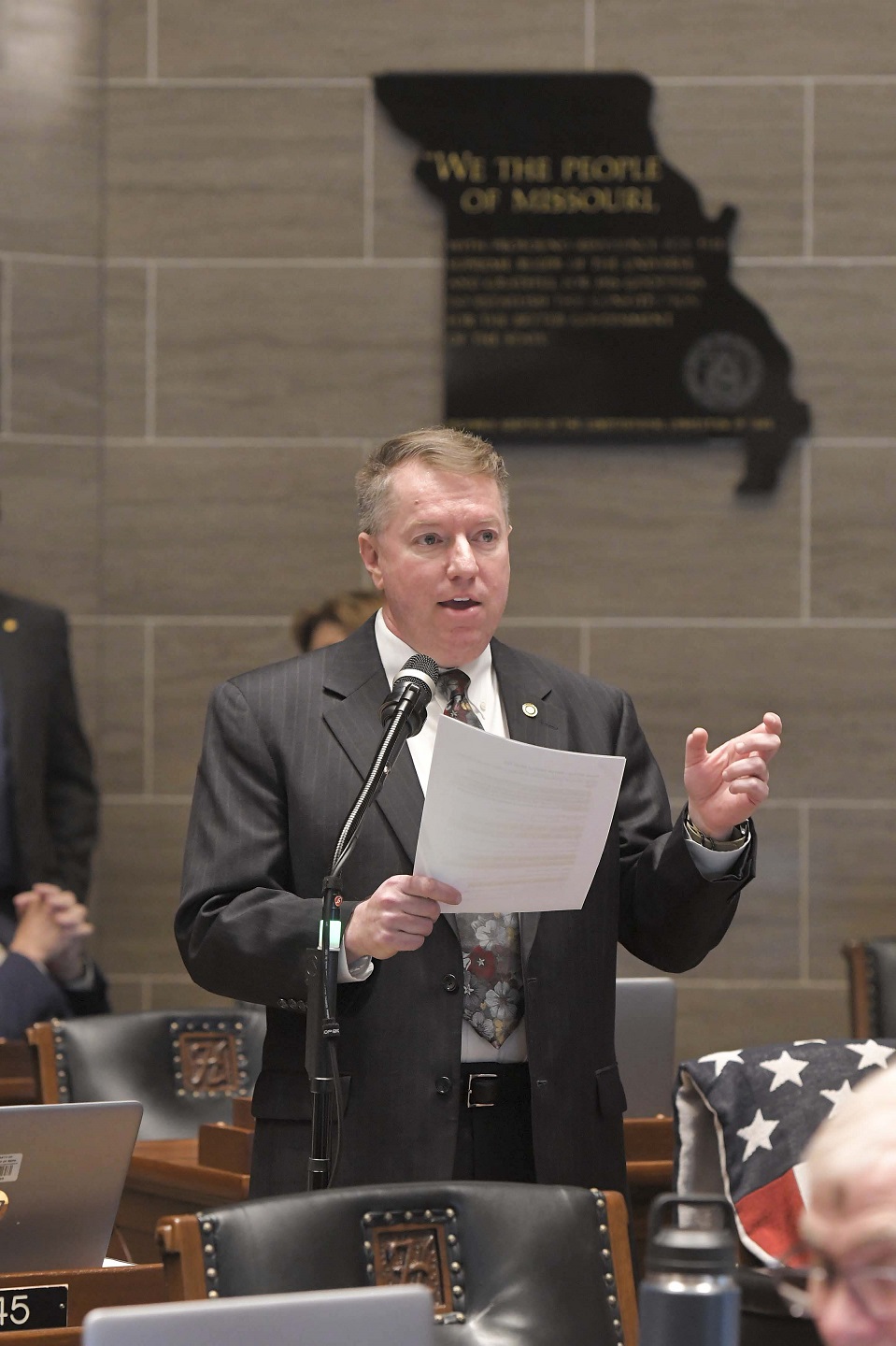
The “Show MO Act” created credits for up to 30 percent of qualifying expenses for live entertainment and tour expenses, if certain conditions are met. It created credits equaling 20 percent of qualifying film production expenses, with additional credits available if more conditions are met.
Senate Bill 94 had broad bipartisan support on its way through the House and Senate, and was signed into law by the governor last month.
Representative Michael O’Donnell (R-St. Louis) said with tax credits, the first consideration is always whether they are fiscally responsible.
“We really worked hard to try to make it as conservative as possible while at the same time leveling the playing field so Missouri can compete with other states,” said Cape Fair Republican Brad Hudson regarding the concert portion of SB 94. “These kinds of concerts could be held in numerous different places within our state, and we’ve seen when a big name entertainer comes to town, the kind of revenue that that generates for a community is definitely notable, and I expect that we will see more of that after this legislation takes effect.”
For an artist to qualify for the credits they must perform at least two concerts in the State of Missouri.
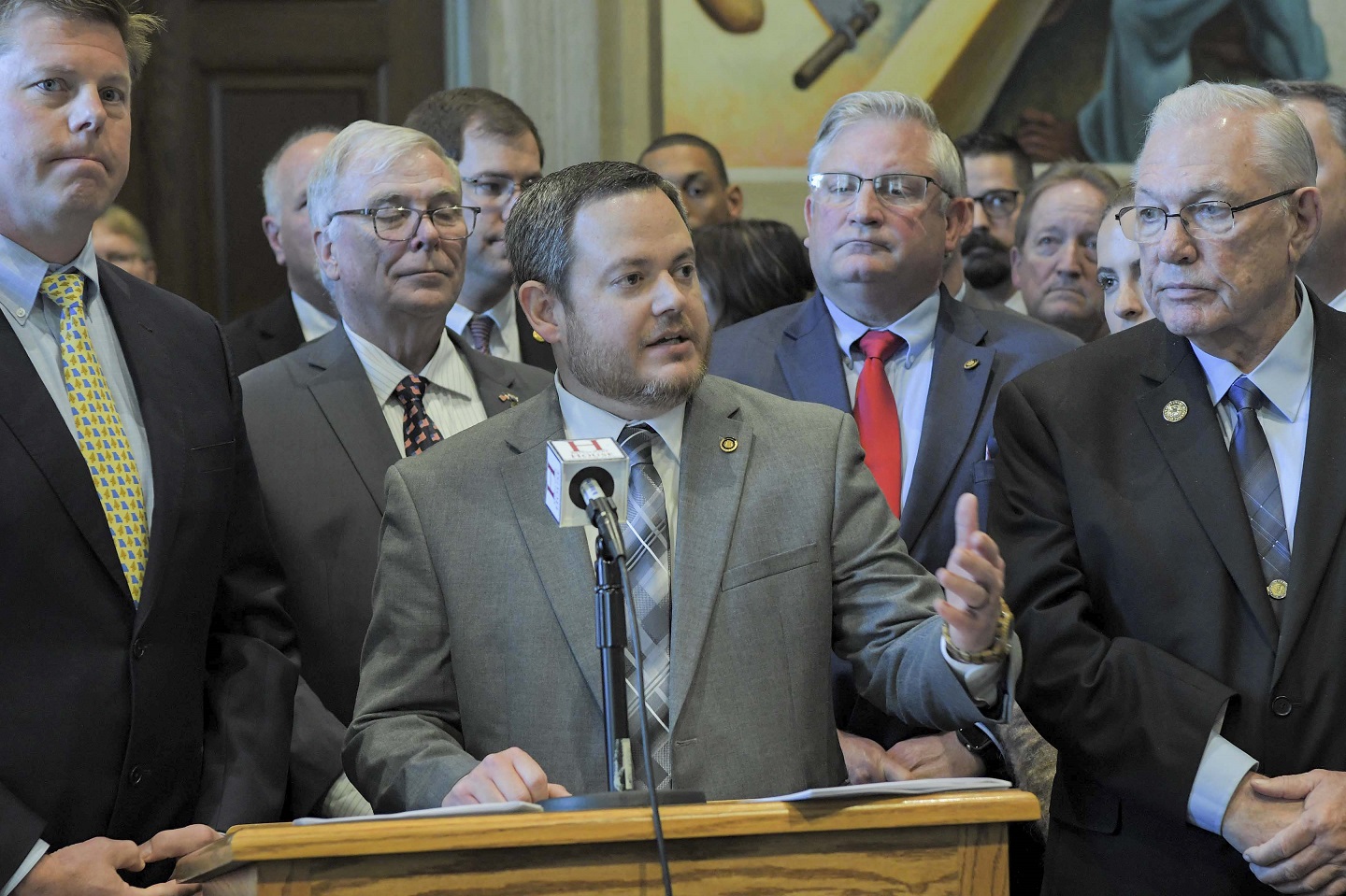
The only other state that offers tax credits to concert productions is Pennsylvania, which recently increased the cap on its credits due to their success. Hudson said due to geography alone, Missouri could fare even better.
O’Donnell said Missourians could also get more opportunities to see their favorite artists.
The state’s previous film tax credit program expired in 2013. Since then the state has hosted little in the way of television and motion picture filming, while some major projects – even ones set in Missouri – have gone elsewhere. The new law puts Missouri among 39 states that offer film incentives.
Representative Steve Butz (D-St. Louis) has a brother in the film and live theater industry, who this past spring moved to Georgia to film a movie that might otherwise have been filmed in Missouri.
“He, just as an actor, said hey, you know that Georgia has these film tax credits and the film industry has exploded in Georgia even to the point that Ozark, the show that was a huge success and was meant to be filmed, and it certainly is about, the Missouri Ozark region, was filmed in Georgia, as was this movie that my brother just filmed. He said it absolutely is attracting and creating a film industry,” said Butz. “He said Missouri is losing out on this. You don’t have hardly any TV shows filmed there, you don’t have movie sets coming there. They might use a few shots like to simulate something from the Midwest, or if it has to do with St. Louis or Lambert Airport or something, but they’re not actually moving the sets and the crews there.”
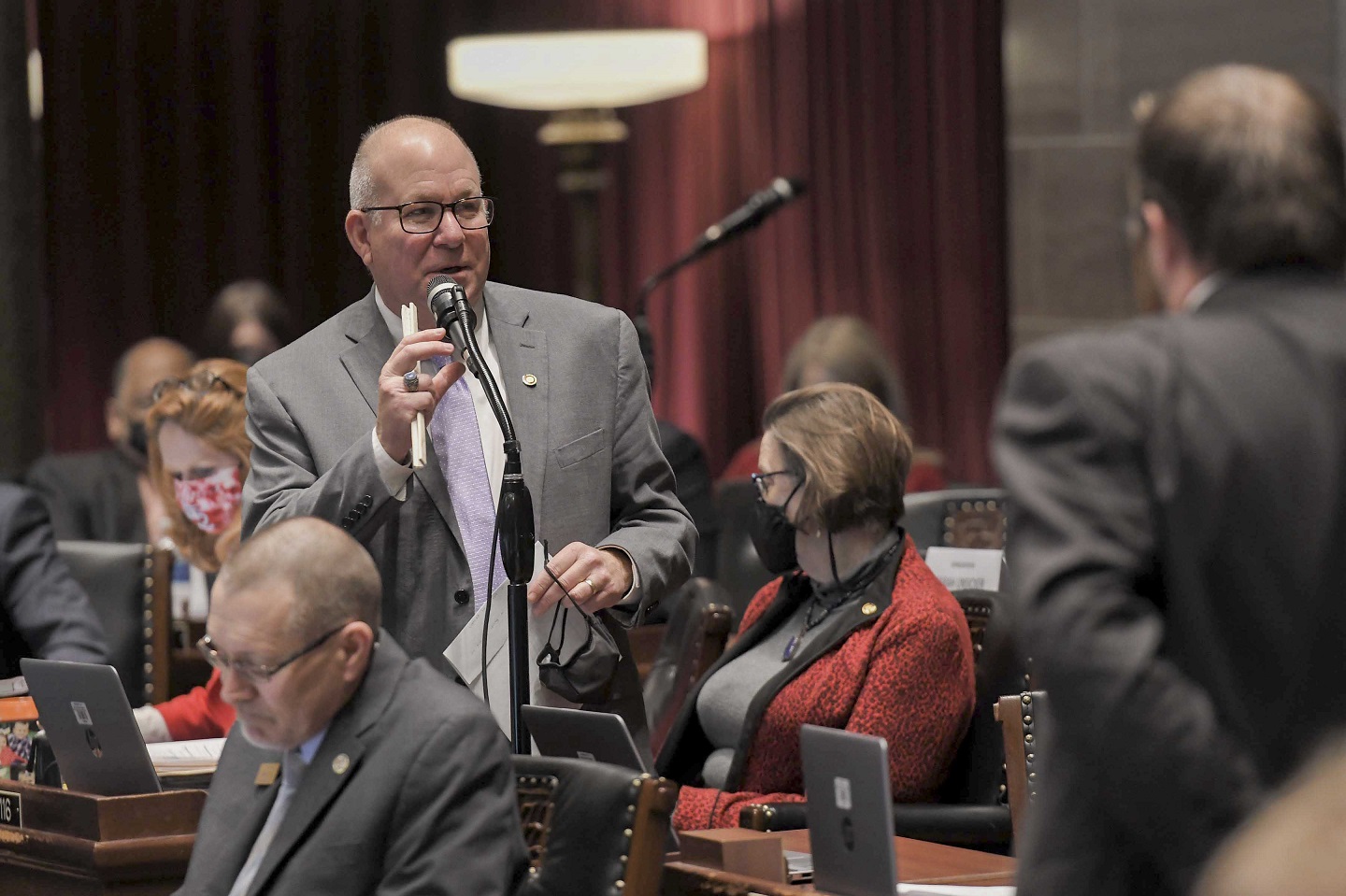
The benefits of having things filmed in Missouri aren’t just financial. There’s a boost to the very morale of communities, and that often spans generations.
The film tax credits are capped at $16-million dollars. In addition to the 20 percent credit for qualifying film productions, another 5 percent can be earned if at least 15 percent of production takes place in a rural or blighted area; another 5 percent can be earned if a certain number of Missourians are hired; and another 5 percent is available if the production depicts Missouri or the region in a positive light. The Department of Economic Development will decide which productions are approved.
As with all tax credits, these will be reviewed annually by the legislature to ensure that they are benefitting Missouri. As O’Donnell put it, “What’s the return on investment? The state’s taxpayers are making an investment. What are they getting back? I think in this case we’re going to find ourselves very positive.”
The legislation becomes effective August 28. The new tax credits would expire in 2030 unless a future legislature and governor agree to extend them.
VIDEO: House Republican and Democrat press conferences 04-13-2023
Missouri House Republicans and Democrats spoke to the media and fielded questions before legislators went home for the weekend:
House acts to stem property tax spikes on used vehicles
The House has given initial approval to a plan to lessen the increases Missourians will see in their property taxes due to rising vehicle values.

Representative Brad Hudson (R-Cape Fair) is a former county assessor. He explained to his colleagues that the values of vehicles in the National Auto Dealers Association price guide have increased significantly. This guide is what assessors must, by statute, use to assess the values of Missourians’ cars.
“If those assessed values increase then our constituents could see their personal property taxes increase on vehicles that are a year older and have more miles on them,” Hudson told the House. “I want to give assessors the ability in statute to take care of this.”
The State Tax Commission testified in favor of the bill when it was in a House committee. Its legislative liaison, former state representative David Wood, explained that statute requires assessors to base vehicle values on NADA prices from each October. He’s seen reports that vehicle sales prices year-to-year have increased as much as 40-percent.
He explained that assessors use average trade-in values and not sales values, but those will still cause significant increases for taxpayers. Wood told his former colleagues that even a 10-percent increase in used car values would equal an increase of about $100-million in collected taxes statewide. A 15-percent increase would equal an increase of about $165-million.
House Bill 2694 would allow assessors to, instead of being restricted to using October’s NADA values, use the trade-in value for a given vehicle from that edition or either of the last two years’ October NADA guides.
“Any assessor that is worth his or her salt, in my opinion, is going to do the very best that they can to meet the guidelines they’re required to meet and help the taxpayer,” said Hudson. “I was an assessor for nine years and there’s no way that I would want to have to sit across the desk from one of my constituents and explain to them why that vehicle that is a year older with more miles on it is worth more now and I’m going to hit you with a higher assessment and that means that more than likely your taxes are going to be higher come November.”
The bill has received broad support during its journey through the legislative process so far. Warrensburg Republican Dan Houx told fellow lawmakers, “This is probably the best thing we can do in this building this year. This affects everyone in our districts back home.”
HB 2694 would allow assessors to make similar determinations of the assessed value of recreational vehicles and agricultural equipment using values from the past two years, as those vehicles have seen similar increases in value.
The House has perfected the bill. Another favorable vote would send it to the Senate.